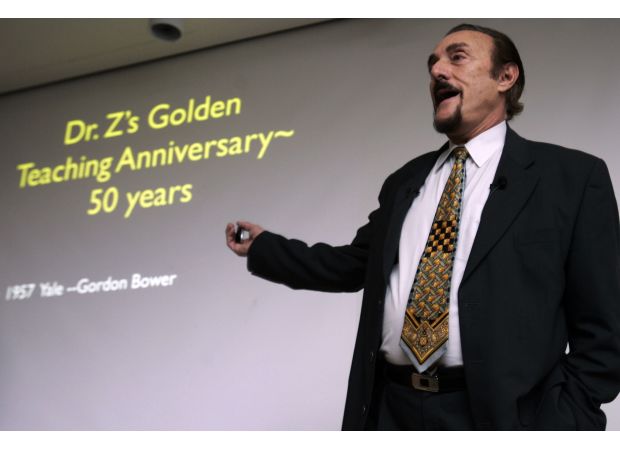The man who conducted the infamous 'Stanford Prison Experiment' has passed away at the age of 91.
In 1971, Philip G. Zimbardo gained widespread attention.

Philip G. Zimbardo, the renowned psychologist known for the controversial “Stanford Prison Experiment,” passed away at the age of 91. His death was announced by Stanford University on Friday, stating that he had died on October 14th at his home in San Francisco. The cause of his death was not disclosed.
In 1971, Zimbardo, then 38, led a team of graduate students in a study that aimed to explore the psychological effects of imprisonment. The study, which took place in the basement of a building on the Stanford campus, involved 24 healthy male college students who were paid $15 a day to participate. They were randomly assigned to play the roles of prisoners or guards.
Zimbardo outfitted the guards in khaki uniforms and mirrored sunglasses, instructing them to create an environment where the prisoners would feel powerless. The basement was transformed into a mock prison, called “Stanford County Prison,” and the experiment was set to last for two weeks.
However, after only six days, the study had to be terminated as the students playing the guards became abusive and those playing prisoners experienced extreme anxiety, depression, and anger. Zimbardo, who had taken on the role of superintendent and was no longer a neutral observer, received criticism for his active participation in the experiment.
Despite the controversy, Zimbardo and one of the graduate students involved in the project co-wrote about the unexpected and shocking outcomes of the study. For years, critics, including other psychologists and some participants, questioned its validity. But Zimbardo maintained that the experiment showed how certain situations can lead ordinary people to behave badly.
Today, the Stanford Prison Experiment is often used in psychology classes to study the psychology of evil and the ethics of research involving human subjects. Zimbardo's other research areas included vandalism, persuasion, hypnosis, cults, shyness, time perspective, altruism, and compassion.
Zimbardo is survived by his wife, Christina Maslach Zimbardo, three children, and four grandchildren. He first gained national recognition for his 1969 study on the causes of vandalism, which suggested that anonymity and a lack of community can lead to antisocial behavior. His contributions to the field of psychology will continue to be studied and remembered.






